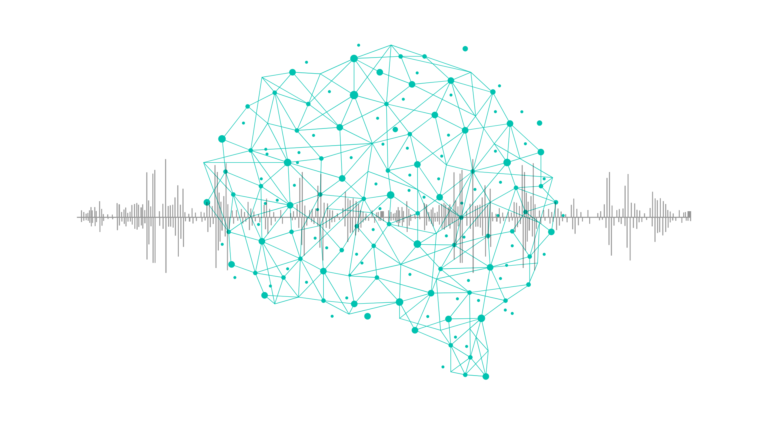Role Of Journaling
How Guided Journaling Can Transform Your Life
When you want to change your life, the first step is to decide what you want and commit to achieving it.
One effective approach to achieving your goals is through neuroplasticity, which is the brain’s ability to reorganise itself by forming new neural connections.
At Neurament, we are passionate to transform every person to their best self through their brain potential.
One of the techniques that we employ is guided journaling, which has been determined to take advantage of neuroplasticity in favour of transformation.
Which leverages the remarkable capabilities of neuroplasticity. By combining meditation, visualisation, journaling, planning, and action, guided journaling empowers individuals to reshape their thoughts, behaviours, and lives.
In this blog, we will discuss how guided journaling is related to neuroplasticity through research and facts.
Neuroplasticity: Plasticity of the Brain
Neuroplasticity is a broader term, meaning the ability of the brain to change and adapt throughout an individual’s lifetime. This concept disputes the traditional belief that the brain remains in its state after a certain age, it does not alter. There are many types of neuroplasticity that are expressed as synaptic plasticity, neuronal plasticity, and functional plasticity.
Neural pathways: Journaling actually rewires the brain; it forms new dendrites and synapses, improves the density of neurons and enhances activity between different parts of the brain.

Neurogenesis: Writing also brings some kind of reflection mechanism such as self-analysis, which can bring about neurogenesis in the hippocampal area that is important in learning and memory.
Rewiring: Guided journaling is an effective method to re-educate the brain because it involves writing about what has been happening and then replacing disempowering thoughts with empowering ones.
Studies have demonstrated the constructive effects of journaling on mental health, cognitive function, and brain structure:

Reduced stress and anxiety: Journaling has been found to reduce the stress and anxiety levels since it helps in stimulating the relaxation response in the brain (Kabat-Zinn, 2003).
Improved mood: Expressive writing about empowering topics improves subjective well-being and can lead to empowering states of affairs. Sullivan & Dillow, (2003), Lyubomirsky et al. (2005).
Increased grey matter: Study has found that journaling has been found to have a relation with the augmentation of grey matter in the hippocampus and the prefrontal cortex (Luders et al. , 2013).
The Guided Journaling Process
Journaling has long been recognized as a powerful tool for personal growth and self-improvement. The term guided journaling refers to the planned and deliberate kind of journaling that comes with writing prompts and exercises aimed at facilitating personal reflection, planning, and transformation. When journaling is practised together with some of the activities like meditation, visualisation and planning, it may produce increased mental clarity, focus, goal achievement and overall well-being. This method can also be most beneficial during routine activities, in utilising the mind’s capacity.
The process consists of several key steps:
Routine: Keeping a daily journal is good because when you write every day it becomes a routine and you do not quit.
Meditation: Some people choose to meditate and clear their mind before beginning their journaling session; this practice can help a person reflect deeply about themselves.
Visualisation: It is a form of motivational technique where you construct a mental picture, a perception, or an imagination of what you wish to achieve. When you paint a picture of your goals in your mind it develops a constructive attitude in you.
Journaling: Putting pen to paper for what is going on in your mind, what you felt, and what you are thinking helps in moving on.
Planning: Developing an action plan means identifying action steps needed to be taken in order to meet your goals, which helps to make goals realistic.
Action: Planed execution is significant because it defines progress towards goal achievement and maintains positive change.

Research has shown that journaling can lead to numerous psychological benefits:
Cognitive Benefits: Writing in a journal allows for outlining of ideas, understanding of feelings, and enhancement of problem-solving abilities. Writing about emotions helps in enhancing the mental processes and reducing the clutter of the mind—a fact that has been coming from various studies.
Emotional Regulation: The effect of expressive writing can often be liberating and people will have less tension and stress. This enables people to deal with certain experiences and feelings, which enhances self-regulation.
Goal Setting and Achievement: Use of writing up objectives and strategies enhances dedication and responsibility. Research has provided evidence that proves that goal setting with writing down the goals as the core points increases the chances of success as compared to the cases where an individual does not write down the goals.
Improved Mental Health: Writing in a journal may help to alleviate symptoms of depressions and anxieties as it relieves stress. In Journal of Medical Internet Research the study found that when patients engage in expressive writing it leads to a material reduction in their mental distress.
Enhanced Self-Awareness: Self- narration has been used as a form of anger management that assists people in understanding their emotions and which in turn enhances reasoned thinking.
Effective in Day-to-Day Life
Writing prompts and exercises in guided journaling are very specific and intended to coax the participants into reflecting on their lives and coming up with personal changes. The results bear out this process, which is based on several highly effective methods: meditation, visualisation, planning, and action, which transforms the neuroplastic capacities of the brain.
Here are some of the key benefits:
1.Improved Mental Clarity and Focus: When writing down your mental notes and things that come to your mind, an individual is able to declutter the mind and have a better focus and concentrate.

2.Enhanced Resilience and Stress Management: Stress-busting is one significant aspect that is facilitated by journaling since it forms a way through which one is able to let off steam and thus needed strength is built to handle stress.
3.Increased Gratitude and Empowerment: Being thankful for something, whether it is material or non-material, can change the way you perceive things in general and can lead to increased levels of happiness.
4.Better Goal Setting and Achievement: Writing in a journal enables one to specify goals, establish functional strategies and monitor progress, translating to better achievement outcomes.
5.Enhanced Productivity and Daily Habits: If you organise your day and take some time to think on what you do and/or fail to do, you can find out what areas you need to improve and how to improve your productivity.
6.Overall Well-being and Life Satisfaction: Daily writing helps one to introspect and thus facilitate his/her growth and eventually results in an enhanced quality of life.
Outcomes of Guided Journaling
Improved Mental Health and Well-being: Writing things in a notebook helps get rid of pent-up feelings and may decrease cases of anxiety and depression.
Enhanced Cognitive Function and Memory: When one writes or reflects on what she or he has written, the brain is also working and therefore the more so the better the brain and memory capacity.
Increased Self-awareness and Personal Growth:
Journaling encourages introspection and identification of the self, thus enabling personal transformation.
Better Relationships and Communication Skills:
Self-analysis helps to enhance the skills of interpersonal communication and create the framework for a healthy interaction with the other person.
Improved Physical Health and Overall Quality of Life: The practice of journaling can help improve physical health as it decreases stress and inspires people to make better choices.
Who Can Use Guided Journaling?

Anyone can benefit from guided journaling, including
Individuals Seeking Stress Relief and Relaxation: Writing in a journal helps in dealing with feeling and stress hence helping in releasing the stress being experienced.
Those Looking to Improve Their Mental Health and Well-being: Keeping a journal can also help alleviate symptoms of anxiety and depression and overall well-being.
Students and Professionals Seeking to Enhance Cognitive Function and Focus: Writing a journal can enhance the individual’s concentration span, sustain concentration of visual attention, and enhance cognitive abilities hence can be an essential tool to be used by students and professionals.
Anyone Looking to Increase Self-awareness and Personal Growth: Journaling involves a process of reflecting about oneself, which increases one’s awareness of self and personal development.
Individuals Seeking to Improve Their Productivity and Daily Habits: It assists in recording new goals, creating strategies for achievement, and observing the outcomes thereby increasing daily efficiency and personal habits.
Applications in Regular Day to Day Lives
This holistic method can be effectively integrated into daily routines:
Morning Routine: It is recommended to devote about 10-15 minutes in the morning to meditation and visualisation. This should be followed by journaling in order to track goals/ intentions.
Daily Planning: Develop a daily to-do list that will have specifications on activity and significance. It is advisable to use a planner or an application to check on the progress of the different activities to be conducted.
Evening Reflection: Finally, when the day is over, do journaling in which one tracks the accomplishments, impediments, and things you have gained from the day. Practice gratitude by jotting down things that you are grateful for being.
Research Results
Studies have demonstrated the Constructive effects of journaling on mental health, cognitive function, and brain structure:
Reduced Stress and Anxiety: Research indicates that the use of journals helps in the reduction of stress and anxiety because journaling triggers the relaxation response within the brain (Kabat-Zinn, 2003).
Improved Mood: The research says writing empowering messages and emotions can contribute to the overall happiness and enhance hedonic well-being of the individual (Lyubomirsky et al. , 2005).
Increased Gray Matter: Scientific studies have associated journaling with the development of the grey matter in the brain regions that include; hippocampus and Prefrontal Cortex (Luders et al. , 2013).
Conclusion
For Neurament, we believe that guided journaling is an effective tool that can change your life for better using neuroplasticity. This is how guided journaling with the use of meditation, visualisation, journaling, planning, and action redirects your brain and brings success. Whether it is to relieve stress, manage mental health issues, boost up your cognitive abilities or develop self awareness, guided journaling is definitely a useful tool for incorporation into one’s daily life.
Give guided journaling a try today and begin heeding the call of change with the help of Neurament. Neuroplasticity is the focus of the exercises in the guided journaling and the goal is to reach your full potential. Take control of your life and become a Neurament member now to get on the right track to a better you.
